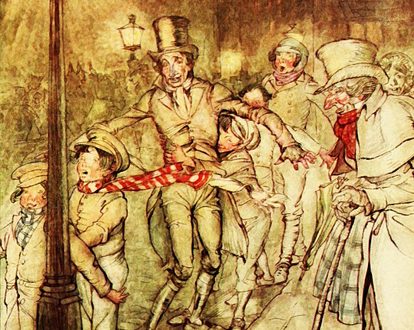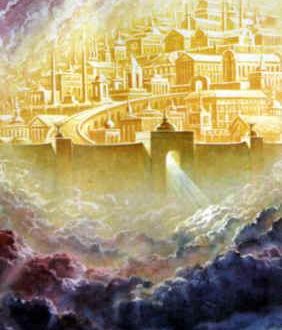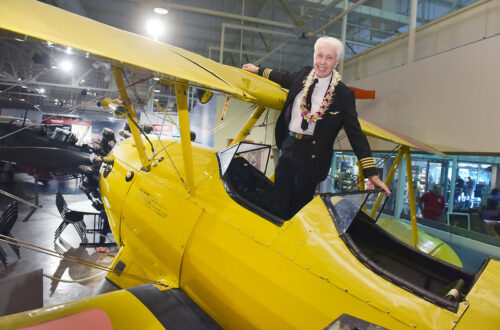Finding Christ in Literature, Part 2
Back in 1996 as my husband and I sat eating with a group of doctors in the former Soviet Union, several women from their equivalent to NOW approached us with a strange request: Would someone from our group be willing to teach them the Bible?
Through reading Dostoevsky, Tolstoy, and other Russian greats, these feminists had encountered references to stories about a burning bush, a man swallowed by a great fish, and a carpenter from Galilee. And they knew they lacked understanding because of their unfamiliarity with the Bible. Would we teach them?
In Chuck Colson’s book, The Body, I read of a poet who came to faith while imprisoned in an atheistic country because she was reading the classics and encountered Jesus in their pages. Two weeks ago, I shared the first half of my list (tinyurl.com/25vwo5r) of some books that reveal Christ or biblical truth in the pages of literature. It’s certainly not an exhaustive list, but it’s enough to keep you busy! Here’s part two:
Bernard Malamud, The Assistant. Most people who know Malamud know him because he also wrote The Natural, made into a movie starring Robert Redford. Tucked into this story about a homeless guy working for a Jewish grocer in Brooklyn the reader finds gems from St. Francis of Assisi and the Bible.
Samuel Richardson, Pamela, or Virtue Rewarded [1740]. The subtitle tells it all. Pamela is a godly woman who must wrestle against many opposing forces to keep her virtue. Not unlike today.
Mary Shelley, Frankenstein [1818]. Frankenstein? Seriously? Uh-huh. This is a great companion to Genesis 1 and 2. The creature’s lament about his emptiness in lacking “a partner corresponding to him” provides a heart-wrenching glimpse into Adam’s aloneness and God’s provision.
Aleksandr Solzhenitsyn, One Day in the Life of Ivan Denisovich. This one’s a fast read. It’s the story of a man sentenced to hard labor in a Soviet work camp. One of the characters is a believer, and his perspective on his suffering challenged this reader to consider a different-from-the-world perspective.
John Steinbeck, East of Eden [1952]. East of Eden is a modern retelling of Genesis 4, the struggle between two brothers—one righteous, and one not so much.
John Steinbeck, The Grapes of Wrath. This is a work about people migrating due to poverty. For added insight, read The Grapes of Wrath alongside a Bible study of Ruth or as you’re considering the importance of community in the believer’s life.
Bram Stoker, Dracula [1897]. Recommend this to your friends who are into the Twilight series. There’s a reason crosses work when you need to repel a vampire.
Harriet Beecher Stowe, Uncle Tom’s Cabin [1852]. Stowe’s masterpiece demonstrated how theology told through the vehicle of story could change the world. Another in my top three. Maybe my top one. Uncle Tom’s Cabin is a great companion volume to Philippians, a study of the justice of God, and/or when considering the hermeneutics of culture. Stowe is a brilliant theologian as well as a clever word-master.
Anthony Trollope, Barchester Towers [1857]. If you wish Jane Austen had written more books, check out the BBC video series based on Trollope’s classic. It includes descriptions of characters such as, “He has persistent bouts of Christianity.”
Evelyn Waugh, Brideshead Revisited. Forget the recent movie and go back and find the long BBC version. Be sure to watch all the way to the last episode. Wow.
Lew Wallace, Ben-Hur [1880]. The movie version does not do the book justice. Wallace wrote a fantastic story that, along with a fabulous plot, also provides an excellent introduction to the many sub-cultures present at the time of Christ.
I could add a lot more, like Melville’s Moby Dick as a companion volume to Jonah. But this is plenty. Still, feel free to add your own favorites!



3 Comments
Sharifa Stevens
This is such a
This is such a mouth-wateringly good list!
I wonder how this century's literary works will be affected by the decrease in common biblical knowledge…will they be informed still, but through the echoes and reimaginings of works like the ones you site?
Sue Bohlin
I’ve been waiting for this!
No kidding–I woke up this morning thinking, "It's Tuesday, and Sandi is blogging Part 2!"
I'm thilled to read that Uncle Tom's Cabin is your possible #1. When we were in Belarus earlier this year, I found myself without any books to read once I had finished all the Twilight books I was reading for research. Ray and I were taken to a book store with a small English section and I bought UTC. The footnotes are in Russian though! LOL!
You've just given me all the reason I need to make sure I finish it. GREAT blog post, Sandi! Thank you!
Sandra Glahn
On the loss of Bible literacy
The notes are in Russian? Seriously? Ha! Bet you won't be reading those anytime soon, Sue.
Sharifa, I do think our lack of Bible literacy is a big loss. But I also think people will be drawn to truth through works that draw on the Bible even if they don't know the primacy source. Case in point: When I was in sixth grade, I was blown away by the truth in Madeleine L'Engle's book, A Wrinkle in Time. It said "Perfect love casts out fear." Wow. That struck me as amazing and brilliant and wise and profound. Only years later did I discover she was quoting 1 John. And when I found out it was actually the Bible that had such amazing words, I wanted to know more.